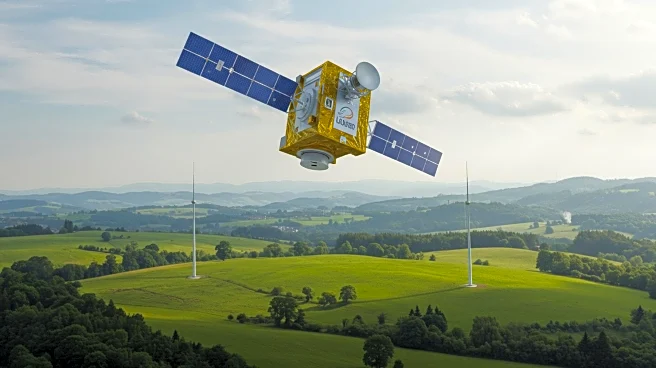What is the story about?
What's Happening?
SpaceX has raised objections to Virginia's revised Broadband Equity Access and Deployment (BEAD) plan, which prioritizes fiber over satellite solutions. SpaceX argues that its low-Earth orbit (LEO) satellite proposal offers a more cost-effective and immediate solution for broadband access, claiming it could serve all BEAD-eligible households for $60 million, compared to Virginia's $613 million fiber plan. The company contends that the fiber-focused approach overspends taxpayer money and delays connectivity. SpaceX's challenge highlights the ongoing debate over the best technologies to expand broadband access, with implications for other states' plans.
Why It's Important?
The dispute between SpaceX and Virginia underscores the broader debate over broadband expansion strategies in the U.S. The choice between fiber and satellite solutions affects cost, speed of deployment, and coverage, particularly in rural areas. SpaceX's challenge could influence other states' decisions, potentially leading to more satellite-based solutions that offer quicker and cheaper connectivity. The outcome of this debate will impact internet access equity, technological innovation, and the competitive landscape of broadband providers.
What's Next?
SpaceX's challenge may lead to further scrutiny of state-level broadband plans, potentially causing delays in implementation. The National Telecommunications and Information Administration (NTIA) will review Virginia's proposal, and its decision could set a precedent for other states. If SpaceX's arguments gain traction, states might reconsider their plans to incorporate more satellite solutions. The ongoing discussions may also prompt legal challenges and negotiations to balance cost, coverage, and technological capabilities.
















